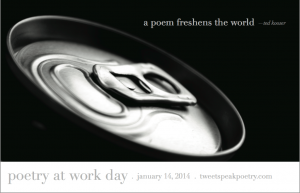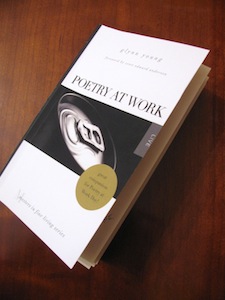For a time I worked on my own, in a small office in the downtown section of our St. Louis suburb (pop. 27, 154). I was a short half block to our train station, a block from the farmer’s market, next door to the bakery. I was on the first-floor of a two-story building (we call that a skyscraper here), sandwiched between a seamstress’s shop and a hair salon. Most days, my spaniel joined me, sleeping somewhere near my feet.
One morning, I turned on my computer and pulled up AOL (this was years before social media). The first thing I saw was smoke pouring from one of the towers of the World Trade Center. I flipped on my portable television and watched a plane hit the second tower.
The Amtrak station was still half a block away. The farmers market was opening up. I could still smell the leftover fragrance of doughnuts frying at the bakery. The hair stylist had just welcomed her first customer of the day, and the seamstress was working on adjusting a party dress. The dog was still asleep at my feet.
I wasn’t sure whether my immediate environment or the scenes on the television were the more real or unreal.
Can poets and poems make sense of something like this?
Poet Grace Schulman confronts a similar and more individually personal discontinuity in the poem “Hickories, ” included in her new collection Without a Claim:
Why do I write of hickories, whose boughs
touch other boughs across a slender road
when our neighbor, Haneen, born in Gaza,
cried that a missile ripped her niece apart
in the family garden? The child’s father
found her intestines stuck to a cypress bark
and he, too, perished in the raid. Her mother
wrote to Haneen before the news was out,
“Help me. Take my hand.” Why do I rave
of hickories reaching out their crooked fingers?
Because before the fires, the child, Lina,
was dropping almonds into a linen napkin.
Soon she would run to offer them for dinner.
Like Lina, I race to show you hickories,
their nuts shrunken brown globes, soon to fall.
For all the graphic images of missiles, death, and destruction, it is a remarkably quiet poem, and the quietness is what gives it its power. While few of Schulman’s poems in the collection are as unsettling as “Hickories, ” they all share a sense of quiet repose in the face of discontinuity and the futility of what contemporary humanity puts its faith in—technology, power, wealth, music, art, culture, even physical therapy.
But ocean liners will sink, bodies will decay, houses and bridges will eventually collapse. Tragedies happen. Even the subject of a poem like Handel’s Messiah (and one of the poems in the collection is indeed about the Messiah) is ultimately about discontinuity and upheaval.
So we turn to a line of hickory trees to attempt to make sense of a child dying in a missile attack. Or, in the face of the destruction of the buildings of the World Trade Center, even those of us hundreds of miles away and unconnected directly to the tragedy did our own version of writing about hickory trees. We called our spouses, children, relatives and friends, to hear their voices and so assure ourselves that the entire world had not gone mad.
Schulman, the author of six books of poetry and several other works, cites a number of poets as major influences, including Walt Whitman, Gerard Manley Hopkins, Dante, and Marianne Moore. Several are cited or memorialized in the poems of Without a Claim. They, too, are often about change and discontinuity, and how one deals with both.
With quiet words and unsettling subjects and images, Schulman captures our attention and makes us ask the eternal question, “Why?”
Image by h. koppedelaney. Sourced via Flickr. Post by Glynn Young, author of the novels Dancing Priest and A Light Shining, and the just-published Poetry at Work (T. S. Poetry Press).
Buy the book Poetry at Work.
Celebrate Poetry at Work Day.
_____________________________

Visit the official Poetry at Work Day poster page for free printable posters and computer wallpapers
_____________________________
- Poets and Poems: Avraham Stern and “A Soldier and a Poet” - July 15, 2025
- Poets and Poems: Beth Copeland and “I Ask the Mountain to Heal My Heart” - July 10, 2025
- A.E. Stallings: the Parthenon Marbles, Poets, and Artists - July 8, 2025

Donna says
Such power in quietness, to be sure. Love the way you said that. What a breathtaking poem. Great post. Thanks Glynn.
Glynn says
Donna – thanks for reading and commenting. What I keep being reminded of is how much we can learn from the past — and past writers.
Martha Orlando says
I think we writers, in general, be it through poetry or prose, try to make sense of this world with our words. This poet whom you featured here is a perfect example. Her poem is quietly brilliant!
Thanks, Glynn!
Glynn says
It’s something, I think, we all do – try to make sense of the world.
Maureen Doallas says
Thank you for the introduction to Schulman, Glynn.
That poem’s plain-spokenness, its every-day matter-of-factness, annihilate. Quiet, yes; and behind it is a fierce determination to not lose hope or fail to see beauty. To give witness is to open our eyes to what we lose.
Glynn says
Thanks, Maureen. I really enjoyed this poem (and the collection), and finding out more about Schulman.
SimplyDarlene says
Ah, sir Glynn, your third paragraph was as undoing as the poem you shared.
Love hard in the simple things.
Blessings.
Glynn says
Thanks for the comment, Darlene. As soon as I read that poem, it was like being back in that office 12 years ago.
Marcy Terwilliger says
After reading this I see it all so clear in my mind. Why? We are not in control here. Man plans, God laughs. Thanks Glynn it gives you pause.
Glynn says
Marcy – thanks for reading and commenting. And it does give pause.
Rick Dawson says
Many years before 9/11, I watched a man get murdered on the streets of Saigon on the evening news before going back to the streets of my sleepy little Massachusetts town to pedal off my dinner – and avoid the insanity within the walls of my home for as long as I could.
Thanks, Glynn, for reminding me we all have to cope with discontinuities as best we can.